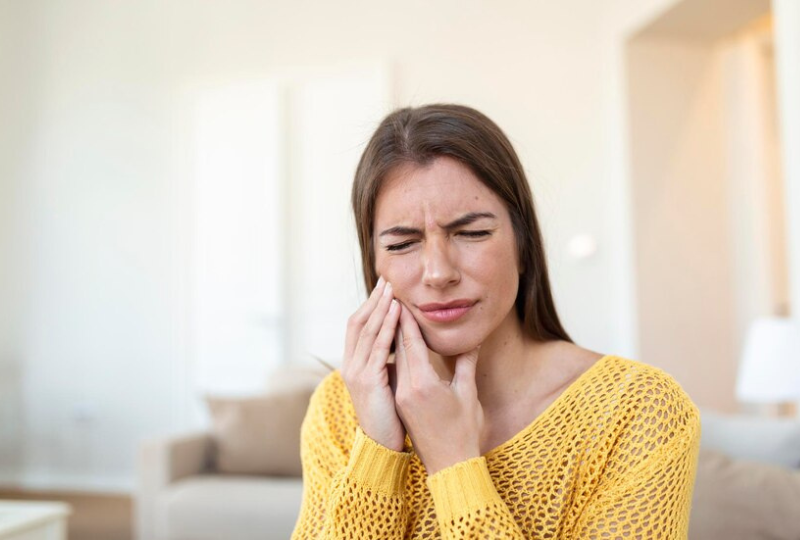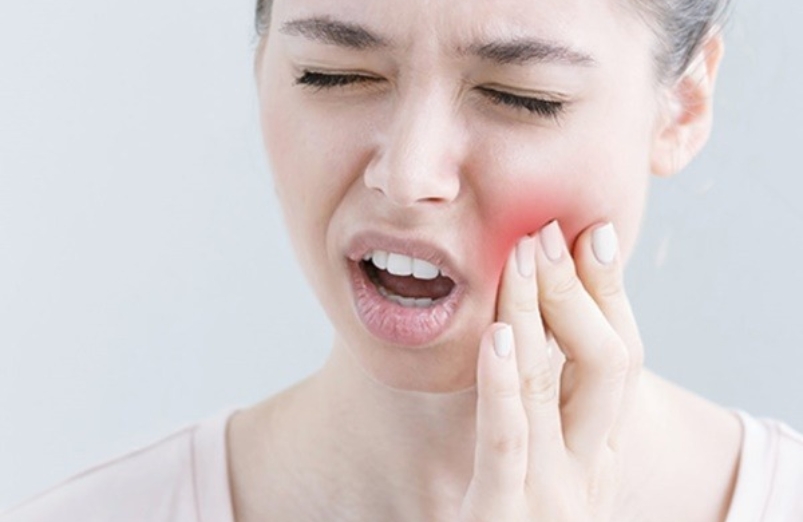2200 AW Grimes Blvd, Suite 100 Round Rock, TX 78665
Emergency Dental Care: What to Do When You Chip a Tooth

Welcome to our comprehensive guide on managing a common yet distressing dental emergency: a chipped tooth. Picture this: you’re enjoying a meal or engaging in everyday activities when suddenly, you feel a piece of your tooth chip away. It’s a jolting experience, but fear not! This guide is your go-to resource for handling this unexpected situation with confidence and clarity. We’ll unravel crucial steps to take during this dental emergency, ensuring you’re well-prepared and informed. From immediate actions to seeking professional care, join us on this interactive journey toward understanding and effectively managing a chipped tooth emergency.
Understanding a Chipped Tooth
A chipped tooth occurs when a part of the tooth’s enamel breaks, often due to accidents, biting hard substances, or dental issues. It can range from little cosmetic damage to more severe structural concerns. The severity determines the necessary treatment. While small chips may not cause immediate discomfort, larger ones can result in pain, sensitivity, or even infection. Seeking dental attention promptly, regardless of the chip’s size, is crucial to prevent complications. Understanding the nature of a chipped tooth empowers timely action, ensuring proper care and preventing potential dental issues from escalating.
Immediate Actions to Take
1. Rinse and Clean: Gently rinse your mouth with warm water to wash the area around the chipped tooth. Use a mild saltwater solution for a more thorough cleanse to reduce the risk of infection.
2. Control Bleeding: If there’s any bleeding, apply a little pressure using a piece of gauze or a clean cloth to stop it. A cold compress against the outside of the mouth can help reduce swelling.
3. Save any Broken Pieces: If possible, preserve any larger fragments of the tooth in a container with milk or saliva. This might be beneficial for potential restoration by your dentist.
Pain Management
Managing pain from a chipped tooth involves over-the-counter pain relievers like acetaminophen or ibuprofen to ease discomfort. Avoid aspirin directly on the affected area to prevent irritation. A cold compress applied externally can also reduce swelling and discomfort. However, these are temporary measures. Seeking prompt dental care remains the most effective way to address the underlying cause of the pain and prevent further complications. Pain management serves as a temporary solution while awaiting professional dental assistance.
Seeking Emergency Dental Care
Seeking immediate dental care after chipping a tooth is crucial. Contact your Emergency dentist in Round Rock promptly, even for seemingly minor chips, as they can assess the damage and prevent potential complications. Explain the situation clearly, follow any instructions given, and schedule an appointment as soon as possible. Quick action enhances the chances of successful restoration and minimizes discomfort. Dental professionals can provide tailored guidance and treatment options, ensuring timely care for your chipped tooth.
Temporary Solutions
Temporary solutions for a chipped tooth include dental bonding, veneers, or crowns. Your Round Rock emergency dentist might suggest these options to restore the tooth’s appearance and function on a provisional basis until a permanent fix is performed. These solutions aim to prevent further damage or discomfort and enhance the tooth’s aesthetics. However, they serve as interim measures. Consulting a dental professional for the most suitable temporary solution tailored to your specific case ensures proper care and restoration of the chipped tooth.
Preventing Further Damage
To prevent further damage after chipping a tooth, limit chewing on hard objects or biting down on extremely tough foods. Also, consider using a mouthguard during sports activities to protect your teeth from potential impacts. Taking these preventive measures can safeguard your teeth from additional harm and minimize the risk of further chipping or structural damage. Prioritizing caution and being mindful of your oral health can significantly reduce the likelihood of future dental emergencies.
In conclusion, managing a chipped tooth requires swift action and proper care. Remember, quick rinsing, controlling bleeding, and seeking immediate dental assistance are vital steps. Pain management and preserving any broken pieces can aid in the dental restoration process. Equally important is prevention; avoid chewing on hard substances and consider protective measures during physical activities. Your dentist is your best ally in resolving this issue, so don’t hesitate to seek professional help. By following these guidelines, you’ll not only alleviate discomfort but also safeguard your oral health. Stay informed, act promptly, and maintain dental hygiene for a healthy, confident smile.




